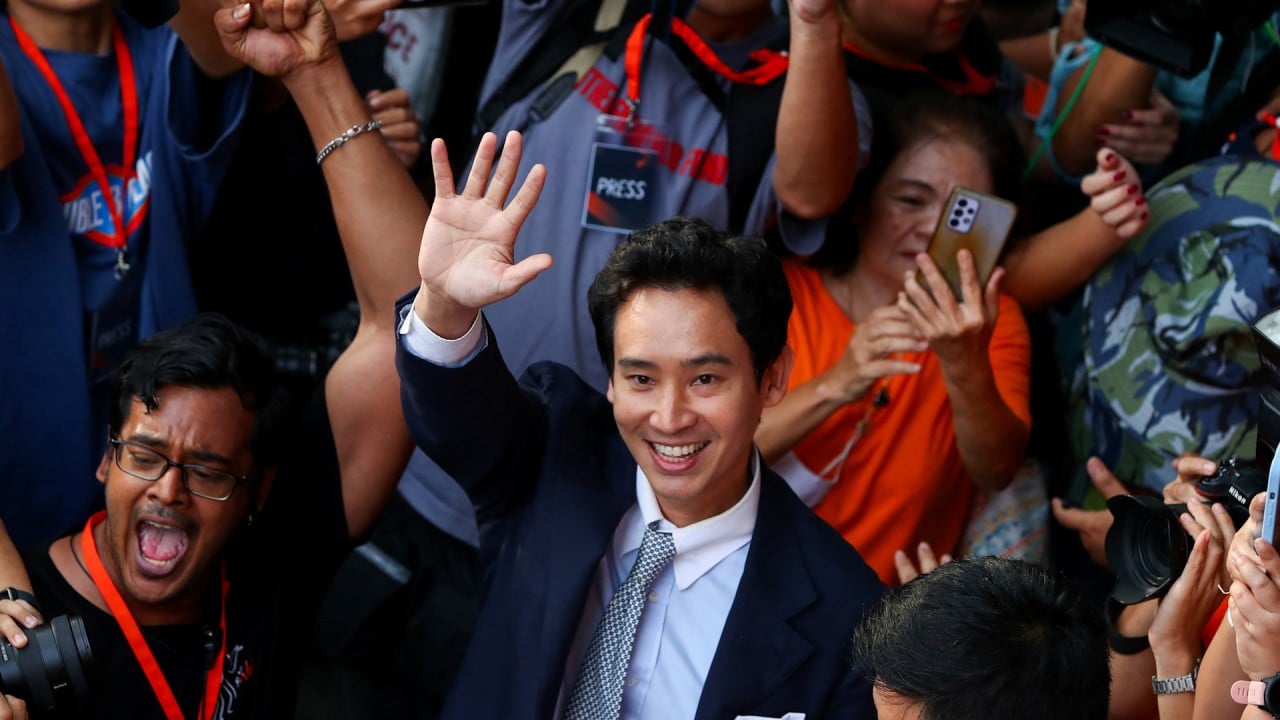The lawyer, Pichit Chuenban, once represented Thaksin Shinawatra, the billionaire two-time prime minister who still wields considerable influence despite his advancing years (75) and lack of formal political role.
Srettha, a real estate tycoon with no previous frontline political role, denies wrongdoing and appears confident he will survive Wednesday’s ruling.
He emerged as prime minister after last May’s election, despite his Pheu Thai party unexpectedly losing the election as voters overwhelmingly backed the radical reform agenda of the now-dissolved Move Forward party.
After weeks of wrangling, Pheu Thai jumped ship from a pro-democracy coalition led by Move Forward. Instead, it joined hands with its one-time conservative enemies to form a government with Srettha at the helm, which froze out Move Forward.
Since then, Pheu Thai has been accused of abandoning the democracy cause for its own political gain.
Why Srettha is in the firing line given the apparent deal to get him into office is something of a mystery. The complaint against Srettha was brought by 40 former senators aligned with a veteran Thai power broker – former general Prawit Wongsuwon, another elderly back room player who hit 80 this week.
Prawit has seen his influence wane since Thaksin returned to Thailand.
If Srettha is removed from office, he is likely to remain in place as a caretaker prime minister until a new government and leader is appointed. Thaksin’s daughter Paetongtarn is among a two-person shortlist for replacing Srettha who may also be eligible to run again.
Analysts expect him to survive the court case, which has nonetheless sapped the authority of a prime minister whose premiership so far has failed to ignite the imagination of the public and frightened off investors seeking a predictable political landscape.
Back to the future?
The same court dissolved Move Forward on August 7 and banned its frontman Pita Limjaroenrat and other executive members from politics for a decade. The party was accused of an attempt to undermine the constitutional monarchy with a call to reform the criminal lèse-majesté law. That ruling effectively disenfranchised 14 million Thais.
The lese majeste law shields the Thai monarchy from criticism, and its use against dozens of young pro-democracy protesters has brought into sharp focus how the country is governed – and for whom.
It is the second time Thailand’s most progressive party has been dissolved by the courts in four years, both following election successes which rattled the conservative establishment.
The movement has also lost two star performers in businessman turned pro-democracy figurehead Thanathorn Juangroongruangkit and the telegenic Pita – who will be in his early 50s when he is allowed to run for political office again.
He faces more legal peril with 43 other lawmakers with a separate ethics probe into the move to reform the lese majeste law, which could see them banned from politics for life.
Long game
All eyes are on the next election in 2027.
When Future Forward became Move Forward, it more than doubled its vote from 6 to 14 million in four years – nearly 30 per cent of the electorate.
The party believes it reflects the values of a changing public and 2027 will see an electoral landslide that will make it virtually impossible for conservative rivals to manoeuvre into power.
Within days of dissolution, the new party hit sign-ups of 50,000 members with around 1 million dollars of donations – unthinkable numbers for a Thai political party.
And reform of the lese majeste law does not seem to be off the agenda.
“What we saw as problems related to the law, we still see as problems now,” Parit Wacharasindhu, widely seen as another future leader of the reform movement, told reporters. While the verdict has “restricted the solution space … there is still room to discuss a way forward on this issue whether it is a conversation about restricting penalties, restricting who has the right to file a complaint.”
Other tasks ahead for the opposition are challenging the government on Thailand’s flat economy as well as the efficacy of a near US $13 billion digital cash handout scheme which Srettha is determined to roll out over coming months, despite dire warnings on debt.
After the latest legal gut punch, key figures in the pro-democracy movement remain bullish on the future. “Millions of Thais are hurting with us, and they’re ready to turn the pain into power to change this country,” Pannika Wanich, who was banned from politics when Future Forward was dissolved, told reporters after Move Forward’s demise.
“So I’d like to send a message to those with power to stick around and don’t die … because we have just got started.”


